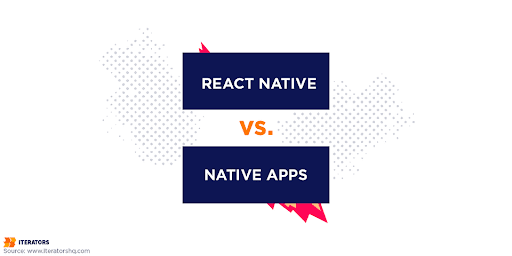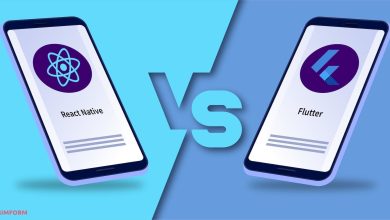React Native Vs. Native? Which Is Better For Startup App Development?

The scenario of choosing one technology stack over another for a startup app development occurs when it comes to deciding which mobile app development route between React Native and Native you need to choose.
Here is an explanatory note clarifying the same, with useful information about which one to choose for your next investment in app development.

Introducing React Native
React Native is a vital part of a mobile app development ecosystem for building cross-platform applications (i.e. Android and iOS) using the ReactJS framework and by harnessing native platform capabilities.
Developed and promoted by Meta Platforms, Inc (formerly Facebook), React Native is drawing attention as a hybrid and go-to framework for mobile application development by saving time and money for your development team.
Benefits of React Native:
- Cost-efficient and quicker time-to-market – It expedites the mobile app development process by enabling developers to employ its feature of JavaScript codebase for multiple platforms. Therefore, it helps them deploy fewer resources and avoid costly maintenance of the app.
- No quality compromise with user experience – Developers can freely create crucial features by using native languages of React Native code without sacrificing the quality of user experience and user interface.
- Simplified coding process – The platform allows developers to simplify the coding process in real-time, without reloading the app. It enhances the productivity rate and saves time, thanks to its Hot Reloading and Live Reloading features
- Excellent support of the growing community – The platform is viable for businesses and developers because of its popular programming tools and support of a constantly growing community worldwide that facilitates third-party integrations for fixing issues in an app.
Problems With React Native Platform:
- Mobile apps based on React Native are too hard to be debugged
- Not ideal for complex designs like multiple screen transitions, animations, etc.
- The immature framework not accommodating to significant updates
- Due to the JavaScript codebase, scaling apps built on React Native is difficult
- Requires extensive knowledge of both web and native technologies
Introducing Native App Development
There are several reasons proving why Native app development is a default route for developers to build applications. Though not effective for most digital products, countless devices worldwide run on native apps.
The best thing about Native apps is that they deliver optimized efficiency in performance by handling platform bottlenecks. These apps are tailored for specific platforms, like iOS or Android, and provide better user engagement than hybrid and web-based counterparts.
Benefits Of Native App Development:
- Provides seamless UI and UX possibilities – Provides seamless User Experience (UX) by self-containing design for each platform. It allows developers to custom-tailor UI and UX with a value proposition for a startup, in terms of enhanced user experience
- Offers performance improvements – It boosts performance by allowing full utilization of the system’s capabilities like computing power, graphic support, frame rate, and speed to ensure performance improvements
- Total OS platform and integration support – Apps built on native Operating System technologies don’t require hot-wire workarounds to access features, including sensors, SDKs, and dedicated hardware
- Easy to control over code – Developers can write low-level code for building Native apps, enabling them to analyze or troubleshoot issues quickly.
Drawbacks Of Native App Development:
- The cost of building native apps is higher
- Induces time-consuming process due to no code reusability and other factors
- Several procedural requirements to download Native apps from the App Store or Play Store
- Problematic multi-platform customization
- No flexibility for developing native apps
- Require frequent upgrades
Concluding Statements
Based on our comparative analysis between React Native and Native app development, we gather that each platform respectively serves the app development process based on the goal, scope, and requirement of the project involved.
For instance, choose React Native if you want to reach out to users on multiple platforms and don’t have enough resources to accomplish the task. Go for Native app development for apps with complex designs or animations or you want to release the product for one platform.
Finally, hiring a trusted software development company would prove beneficial for you to ideate the best platform for your next mobile app development task.
As a software development partner with global repute, we can assist you remarkably in your mobile app development process with solutions that would cost-effectively serve your business goals, at a reduced cost.




